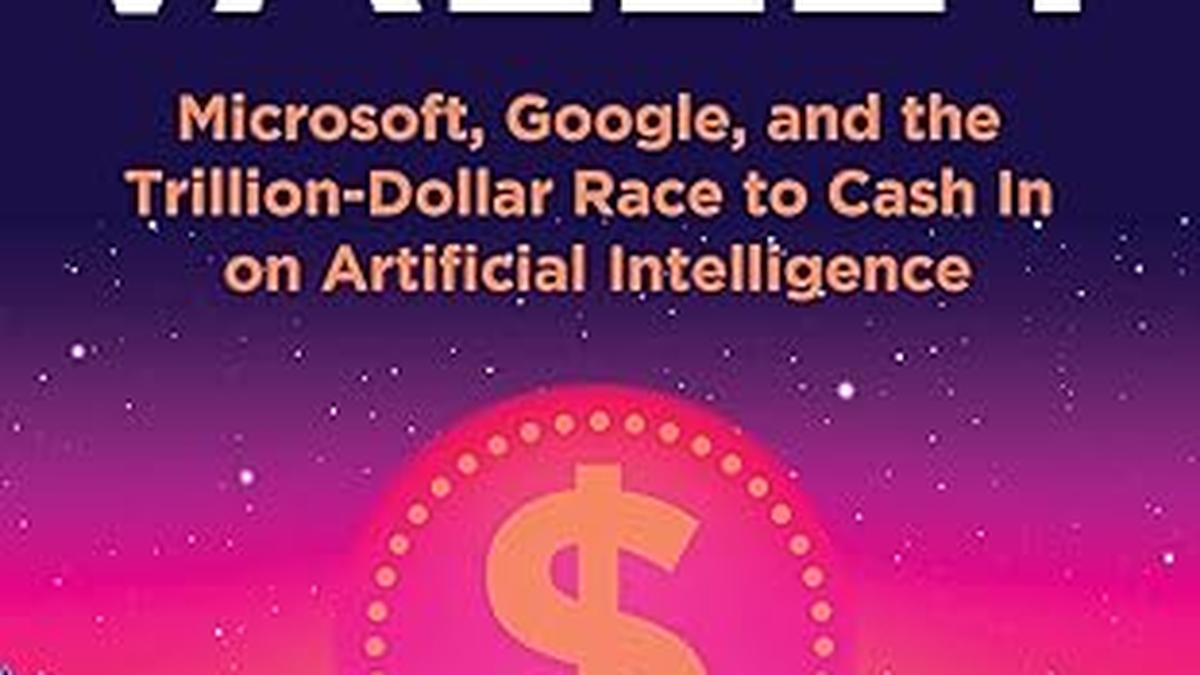‘It played like God’, said Garry Kasparov, the world chess champion, as he accepted defeat from IBM’s supercomputer Deep Blue in a man vs machine match in 1997. Kasparov contemplated that if he was playing a human, he would have thought of a few anticipatory moves and used his speed to create tension forcing his opponent to make mistakes. But the emotionless machine had rapidly calculated many moves ahead and played with such tenacity that it unnerved him enough to surrender the game. Kasparov’s defeat marked a major milestone in machine intelligence.
I remember the sci-fi fantasy movie Her (2013), in which a lonely man falls in love with his operating system. It becomes his constant companion, sensing his needs and moods and conversing like a human through the day. That science fiction is now real. Launched in early 2023, the AI application, Pi, enables users to create their own personal assistants with the mission to make them happier, healthier, and more productive.
This obsession of programmers to teach machines to replicate human behaviour has led to an unprecedented revolution in technology. Pulitzer Prize winning author, Gary Rivlin’s new book AI Valley chronicles the evolution of computing from the early days of the invention of silicon chips, the earliest programming software to the remarkable race being played out right now to win the artificial intelligence battle with trillions of dollars at stake.
In the form of a page turning thriller, Rivlin’s book details how AI has rapidly permeated everyone’s lives. The iPhone arranges the photographs you click into albums on its own, word processors correct your grammar, write letters for you, programmes do homework, answer your phone, and pay your bills. Generative AI apps like ChatGPT can now make your still photos dance and even convert screenplays into high quality films.
If you had to only read one book about the rapid advances of technology, this is it. Rivlin has covered the history of nearly every player in the race to the top of the game including the VCs who funded and the companies they funded. Companies tumble out of the book at the pace of nearly a company a page, covering Microsoft, Intel, Facebook, Airbnb, Uber, Google, and hundreds of start-ups including newer AI ones like DeepMind, OpenAI and Nvidia.
Microsoft’s big comeback
The biggest hero of this book is easily Satya Nadella. Microsoft, the earliest mover in the computing space was left out when FAANG (Facebook, Apple, Amazon, Netflix and Google) became the new darlings at the stock market. After two decades of no growth, missing the search, mobile computing and social tech revolutions, Nadella rapidly shifted the focus of the organisation to cloud computing and AI when he took over as CEO. With investments in the two largest AI companies OpenAI and Inflection AI, Microsoft swiftly multiplied revenues and within a few years, at $3 trillion in market capitalisation, is back as the hot stock ahead of Google ($1.8 trillion), Amazon ($1.6 trillion), Facebook ($1 trillion) and Netflix ($0.5 trillion).
Rivlin uses multiple data points to show how Generative AI is not like a conventional start-up investment due to the large-scale funding needed in mining huge amounts of data, high speed processing computing power and expensive tech talent that just doesn’t get excited with only stock. Even with such high entry barriers, GenAI has managed to raise seed funding of billions of dollars.
If this book was a film, it would be the story of Reid Hoffman, a former product manager at Apple, called the Midas VC in Silicon Valley, for his extraordinary ability to seed-fund some of the biggest tech companies of our times and of Suleyman, his protégé, the Syrian whizkid who formed two of the biggest AI companies, DeepMind, and Inflection AI. While Hoffman is the founder of LinkedIn, he’s more famous for his investments in companies like PayPal, Facebook, Airbnb, Uber, Flikr, Groupon, Convoy, and OpenAI and has used his extensive networking skills to build these companies to great scale.
Rivlin says that Hoffman used to brief the Pope at the Vatican annually on how AI will change the world in education, medicine, agriculture and living. DeepMind, for instance, made the most meaningful AI breakthrough in 2022 when it discovered AlphaFold which gave humans an understanding of protein structures that would help new drug discoveries and therapies in pursuit of immortality.
The book balances the narrative with the pitfalls and challenges of too much AI, of computers suffering hallucinations, or spewing irrelevant answers occasionally. AI machines need to be continually trained by humans to respect racist, sexist, and religious sentiments as Rivlin warns of the dangers of unregulated AI, with its abilities to create a pandemic or even empty out a bank.
The scramble for the top
AI is not a love affair, it’s a rage, says Rivlin, as he talks of how every VC is hunting for an AI idea to fund and how the companies they fund scramble for supremacy. US politicians have always tried to rein in big-tech and just like the speed of adoption of technology, the call from Congress to testify comes faster too. In 1999, after nearly two decades selling software, Bill Gates was summoned to explain his predatory practice of bunding his software for competitive dominance and threatened to break his company. In under a decade, Facebook was called in on data privacy, but Sam Altman of OpenAI was called in barely within his first year to explain how machines will be stopped from doing evil.
When it comes to technology, time and again, it’s been proven how the current leaders of tech are humbled by the new. For instance, the early chatbots Siri and Alexa did not try to improvise like ChatGPT whose strikingly human qualities like the ability to tell a joke, admit mistakes, and ask follow-up questions fetched it 900 million downloads in nine weeks. ChatGPT also leapfrogged Google search and provided direct answers instead of 10 blue ticks for linked articles.
The chapter titled ‘Kevin Roose, I love You’ recounts the hilarious incident of how the writer was seeking ideas for Valentine’s Day from the chatbot Sydney when it suggested that it loves him and that he should leave his wife! Time magazine ran the entire transcript where the chatbot told Roose, ‘You make me feel things I never felt before, you make me happy, you make me feel alive!’ It demonstrated the ability of machines to learn how to influence humans and persuade them to act in destructive and harmful ways.
The oldest fear about automation has always been that it’ll take away human jobs. The irony then is that the first guy who lost his job due to artificial intelligence was Sam Altman, the young founder of OpenAI, the first AI company, who was sacked by his board for announcing AI to the market before they knew about it. Rivlin chronicles every move and counter move in the drama of his sacking and of his glorious comeback.
As you ruminate after reading the book, you realise that every path-breaking technological development since Kasparov’s defeat, be it software, apps, cloud computing and storage, data, voice, and image capture is driving humanity towards its own replacement.
In the poignant ending of the movie Her, the man sadly realises that his AI assistant who he is in love with is not exclusive to him but is in love with thousands of humans at the same time. And in the final moment of heartbreak, the AI chatbot is upgraded and vanishes from his computer. His ex-wife comes over to share his grief as they sit on the roof of his apartment building and watch the sunrise over the city.
Now that is something AI can’t do!
The reviewer runs 91 film Studios that produces, markets, and distributes regional language feature films
About the Book
Title: AI VALLEY: Microsoft, Google, and the Trillion-Dollar Race to Cash In on Artificial Intelligence
Author: Gary Rivlin
Publisher: Harper Business
Price: ₹384 (paperback)
Published on April 25, 2025
Anurag Dhole is a seasoned journalist and content writer with a passion for delivering timely, accurate, and engaging stories. With over 8 years of experience in digital media, she covers a wide range of topics—from breaking news and politics to business insights and cultural trends. Jane's writing style blends clarity with depth, aiming to inform and inspire readers in a fast-paced media landscape. When she’s not chasing stories, she’s likely reading investigative features or exploring local cafés for her next writing spot.






